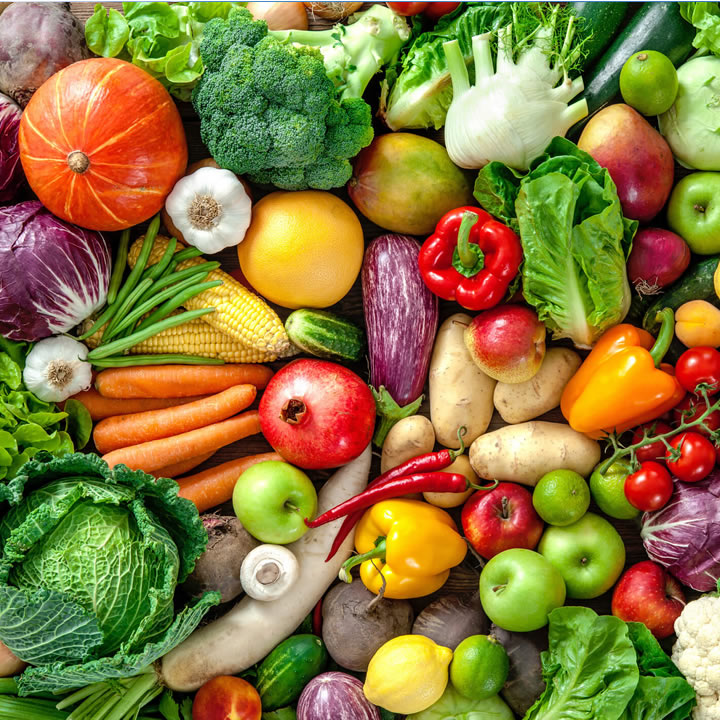Grower-shippers combine the roles of growers and shippers in the fresh produce industry. This means that they are responsible for growing fresh produce and for shipping goods to consumers.
In cases where the fresh produce is pre-packaged prior to being sent off, grower-shippers can also cater to this. According to the Centers for Disease Control and Prevention, only 1 in 10 Americans consumes the daily recommended amount of fruits and vegetables.
As a pivotal part of getting fresh produce to consumers, grower-shippers may also contribute to relevant policy changes, so it is important for us to understand their role in this widespread industry. For the average grower-shipper, there are no days off.
Fresh produce must be grown, stored, packed, and shipped within a day because of its high perishability.
Key ways grower-shippers perform their roles
Grower-shippers are not superhumans. They, therefore, have systems in place that ensure their duties are carried out efficiently. These systems include:
1. Produce management software
All large establishments require automated systems to run efficiently. The fresh produce industry is no different. One innovation that has proven to be exceptionally effective for grower-shippers is the implementation of a produce ERP system.
This software helps to efficiently deal with the managerial and financial aspects of produce businesses. It gives a structured overview of the business’s fresh produce prices per vendor and shipment data.
It also helps businesses leverage market and historical data. This helps one decide on prices optimum for both the business and the customers, which makes it possible for the grower-shipper to make informed decisions quickly.
2. Grower-shipper associations
These are associations founded to cater to the collective needs of grower-shippers.
They usually consist of people in the produce industry with similar goals and challenges.
Grower-shippers join associations because they consistently get updated with what’s happening in the food supply chain. This ranges from recent happenings, and policy changes, to opportunities, etc.
With a support system like this, grower-shippers are more likely to thrive. Such associations also allow the general public to have better insights into the produce industry. Educational materials and courses are provided and funded by them to this effect.
Roles of grower-shippers in the produce industry
Grower-shippers have a lot of roles to play in the produce industry. We can break these down into four main categories, namely:
1. Growing
Grower-shippers are directly responsible for the production of their fresh produce. This includes all the processes involved in planting and harvesting.
A lot goes into fresh produce production. The grower-shipper has to hire and manage laborers who are skilled in their respective fields. They also have to handle the specific products that their business primarily grows, in addition to payment and staffing issues.
Another aspect of production is equipment and machinery upkeep. From the fields to processing rooms, various pieces of machinery are used in established fresh produce businesses.
This remains true despite the high amount of hands-on labor fresh produce trades employ. Machines need to be serviced and they require operators and funds to run smoothly. These are also concerns of a grower-shipper.
Aside from this, the grower-shipper oversees other factors that can make or mar the production of fresh produce. This includes seedling inflation, harsh weather conditions, and workplace accidents.
2. Packing
Packing produce is one of the roles of a grower-shipper.
The product must be clean and well packaged before transport to stay in line with safety standards. This is especially important because fruits and vegetables can be easily contaminated, subsequently becoming subject to recalls.
Packing also prevents damage to the product as much as possible while en route to customers. With proper packing, the integrity of perishables can be maintained. Damaged produce can cause issues with pricing and client dissatisfaction.
Packing also involves the generation of aesthetically-pleasing packaging methods. Some businesses package their fresh produce to stay on brand with market trends and preferences. This is optional, of course.
Grower-shippers that package their fresh produce usually have branded covers or crates. While this adds to the overall cost of operations, it adds more visual appeal. This is good for customer satisfaction, which is ultimately good for business.
3. Shipping
As the name implies, a grower-shipper is responsible for the shipping/transport of their fresh produce.
This is an important aspect of the fresh produce business because of the delicate nature of fruits and vegetables. All the hard work put into planting can be wasted by inadequate shipping. Produce becomes bruised and squished, reducing its quality and market value.
This can amount to significant losses.
Besides the manner of transport, financing the shipping of fresh produce is also carried out by grower-shippers. Seeking affordable transport saves money. The transport company/business hired also has to be highly dependable.
This is because time is of the essence in the fresh produce business. The items being transported have a low shelf life. The earlier fresh produce gets to customers, the better.
The grower-shipper, therefore, sources the best-shipping outlets possible to cater to the business’s shipping demands. Larger produce businesses, with adequate funds, can manage shipping operations without hiring outside help.
4. Selling
It is much involved in the sales of fresh produce. Grower-shippers handle marketing and all other sales processes. They can also help with attracting customers, distributing products, and managing pricing, payments, and discounts.
When done effectively, marketing brings in clients and ultimately drives up profits. Grower-shippers often have to network, liaise, and engage in promotions to achieve this. They also do a market evaluation and decide on prices suitable for clients.
Compelling selling strategies are critical to the success of any running business.

